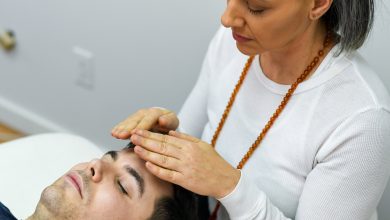What tablets are given for vertigo?

Vertigo is a feeling of spinning around, feeling dizzy, nauseous, & motion sick. Headaches of migraine intensity, Vomiting spells, & hearing issues are also quite common. Vertigo is rarely a condition on its own; it’s almost always a symptom of some other underlying disorder. This can range from infections to illnesses, head injuries, any kind of inner ear issues, and central nervous system disorders. Here know about the best vertigo medicine Lists.
However, most cases of vertigo usually go away on their own after some time. Those that continue to experience the symptoms even after some time, need to seek vertigo treatment. Your vertigo treatment usually depends on the exact underlying condition that you’re suffering from. Your doctor will give you adequate treatment options based on the illness you’re suffering from.
Usually, your vertigo treatment will consist of vertigo medicines, vertigo exercises, & some home remedies. In some rare cases, your doctor might recommend surgical options to you as well.
Vertigo symptoms
It’s possible for different people to have different vertigo symptoms, depending on their exact underlying condition and medical history. However, there are some symptoms that are common for all vertigo patients, regardless of their age, medical history, or cause of vertigo. These common vertigo symptoms include:
- A spinning sensation or a feeling that the surroundings are moving around without any external movement present
- Nausea
- Vomiting
- Uneasiness
- Discomfort
- Sudden dizziness spells and attacks
- Hearing issues
- Ringing or buzzing inside the ears, also known as tinnitus
- Vision problems
- Rapid, abnormal, jerking eye movements, also known as nystagmus
These symptoms may come & go & their intensity and frequency may vary in different people.
A lot of vertigo treatment options are symptomatic, meaning that they are meant to treat the symptoms as they appear. However, some vertigo treatment options also focus on preventative measures and long-lasting relief from symptoms.
Vertigo medicines for vertigo treatment
Your doctor may suggest you some common vertigo medications and medicines for dizziness depending on your exact symptoms and presentation. Most of these vertigo medications are harmless & don’t cause significant side effects. However, some others do have side effects that can be uncomfortable to experience, at best.
Only take a vertigo medicine after your doctor prescribes it to you in the appropriate dosage. Never self-medicate as there are chances that the medicine for dizziness and vertigo might even make your symptoms worse. There are quite a few vertigo medications that are recommended for most people suffering from vertigo. These include:
- Antihistamines to prevent any allergic reactions by blocking the action of certain chemicals,
- Anti-nausea & anti-motion sickness medicines to treat & reduce the intensity of nausea & vomiting in a patient
- Antibiotics to resolve any bacterial ear infections that might be the cause of your vertigo symptoms
- Anti-anxiety medications to treat patients who are having vertigo due to panic attacks and anxiety attacks
- Diuretics, also known as water pills. These are used to reduce the amount of excess fluid inside the ears in patients with Meniere’s Disease. Meniere’s Disease is also a cause of vertigo as it causes symptoms like feelings of pressure inside the ears, hearing loss, tinnitus,
These medicines are usually taken for up to 3 days to almost 14 days. We will cover some of these most common medicines for dizziness and vertigo in this blog.
1. Meclizine (Also known as Antivert)
Meclizine belongs to the antihistamine category of medicines. Antivert reduces the effects of the chemical histamine in the body. It is used to treat nausea, vomiting, motion sickness, and dizziness in vertigo patients. Antivert can also be used to treat the symptoms of vertigo & dizziness in people with vertigo that occurs along with a spinning sensation due to an inner ear issue.
It is also one of the most common medicines for dizziness and vertigo recommended for vertigo patients.
Side effects:
You should look out for certain side effects when you’re taking this medicine. These include:
- Dizziness
- Drowsiness
- Dry mouth
- Headache
- nausea and vomiting
- fatigue
Although Meclizine is safe for most people to take, some people with certain medical conditions should consult with their doctors before taking Meclizine. These conditions include:
- Liver disease
- Kidney disease
- Asthma
- Glaucoma
- An enlarged prostate gland
- Issues with urination
- If you’re planning to become, or are, pregnant
Meclizine is not recommended for children under the age of 12 years as it can harm their growth process.
2. Bonine
Bonine is an antihistamine used to treat dizziness, nausea, motion sickness, & vomiting in vertigo patients. Spinning and non-spinning kinds of vertigo can also be treated with the use of Bonine.
Side effects:
Bonine comes with some side effects. While most of these are harmless, if they become too severe, talk to your doctor immediately.
These side effects include:
- Dizziness
- Drowsiness
- Dry mouth
- Headache
- Vomiting
- Fatigue
Bonine usage is safe for the majority of people. However, consult with your doctor if you suffer from any of the below-mentioned conditions.
- Liver disorders
- Kidney problems
- Asthma or any other lower respiratory tract issue
- Glaucoma
- An enlarged prostate gland
- Trouble with urination
Bonine should only be given to a child of fewer than 12 years with careful consideration and monitoring by a healthcare professional. Never self-medicate yourself or a child with Bonine. Always consult a doctor beforehand.
3. Dramamine II
Dramamine II is also a vertigo medicine used to treat nausea, motion sickness, dizziness, & vomiting that occur during vertigo attacks in patients. It is a derivative of Meclizine & Bonine, & belongs to the antihistamine class of medicines for dizziness.
Side effects:
Dramamine II also has certain side effects like other vertigo medications. Their intensity can vary from one individual to another. Some of the most commonly encountered side effects of Dramamine II include:
- Coughing
- Problems with swallowing
- Dizziness
- Drowsiness
- Rapid heartbeat(tachycardia)
- Hives, itching, & skin rashes
- Facial puffiness or swelling around the eye, lip, & tongue area
- A feeling of tightness in the chest area
- Unusual tiredness or fatigue
- A feeling of vomiting & nausea
- Dry mouth(less common)
- headache(less common)
Most of these side effects are harmless and usually go away once your body starts adjusting to the medicine for dizziness. However, if the above-mentioned side effects occur with other problematic signs like fainting, loss of consciousness, blurred or double vision, & sudden hearing loss, you should immediately visit your doctor.
Dramamine II is safe for most vertigo & non-vertigo patients to take. However, if you have any of the below-mentioned medical conditions, consult your doctor before starting this vertigo medication.
- Asthma
- Glaucoma
- An enlarged prostate
- Kidney problems
- Liver disease
Dramamine should be used with proper caution and careful consideration in a child less than 12 years of age. You should never self-medicate with Dramamine II under any circumstances. Always consult your doctor first.
4. Vertin tablet
Vertin tablet is used to treat the excess fluid accumulation inside the ears in patients with Meniere’s Disease. It helps relieve the various symptoms associated with the disease like Dizziness, nausea, ringing in the ears(Tinnitus), & hearing loss.
Side effects:
Like all other vertigo medicines, the Vertin tablet also comes with certain side effects. These include:
- Headache
- Malaise
- Indigestion, also known as dyspepsia
- Stomach ache
- Bloating
- Nausea
Patients with pre-existing liver disease, kidney problems, & those who are pregnant, should consult with their doctor before starting this vertigo medication. Do not self-medicate with this medicine for dizziness as it may lead to worsening of symptoms & unwanted side effects in some cases.
5. Stugeron Forte tablet
Stugeron Forte belongs to the antihistamine class of medicines for dizziness. It works by treating nausea, vomiting, dizziness, & motion sickness in vertigo patients. The vertigo medication can also be used for patients with Meniere’s Disease.
Side effects:
The most common side effects of the Stugeron Forte tablet include:
- Drowsiness
- Nausea
- Weight gain
- Indigestion, also known as dyspepsia
People with existing liver disease, kidney disease, & those who are pregnant should consult their doctor before starting this medicine for dizziness and vertigo.
6. Stemetil tablet
Stemetil tablet is used to treat nausea, vomiting, & migraine in vertigo & non-vertigo patients. It can also be used in patients with Meniere’s Disease & short-term anxiety.
Side effects:
The side effects of Stemetil tablet include:
- Orthostatic hypotension
- drowsiness
Talk to your doctor if you have jaundice(yellowing of the eyes), glaucoma, kidney problems, &/or are pregnant, before starting this medicine for dizziness and vertigo. Exercises caution when giving this vertigo medication to a child less than 12 years of age. Do not self-medicate with this medication and always consult your doctor first.






